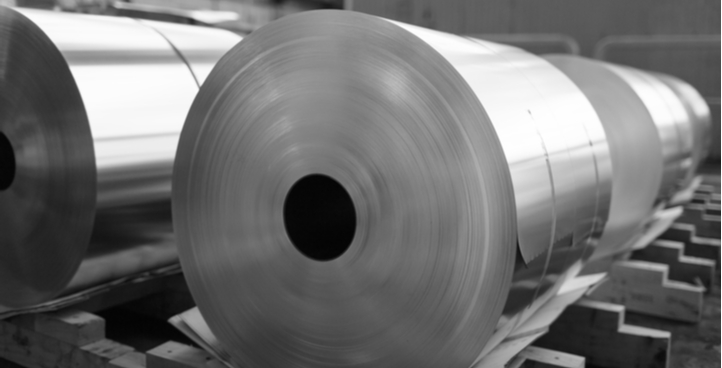Aluminum 6061 vs. 7075: Which One Should I Choose?

Aluminum 6061 vs. 7075: Which One Should I Choose? From automotive and aerospace parts to sports and electrical equipment, aluminum alloys are among the top materials used at Turning machining China Inc.. Their excellent strength-to-weight ratio, high relative strength, corrosion resistance, and machinability make them an attractive choice to many of our clients and customers, regardless of the industry.
Among the most popular aluminum alloys for manufacturing are 6061 aluminum and 7075 aluminum. While similar in some areas, there are some notable differences between the two. We plan to help answer the “Aluminum 6061 vs. 7075: Which One Should I Choose?” question below, but, if you have any questions at any time, feel free to call us at +86-755-29621901 or contact us online.
Aluminum 6061 vs. 7075 Which One Should I Choose?: Applications
It is worth considering the situations in which engineers commonly use each alloy to get a better idea of which one might be a better fit for a particular project. Some typical applications for each of the alloys are:
6061 Aluminum
Building products
Automotive parts
Electrical products
Bicycle frames
Furniture
Piping
7075 Aluminum
Aircraft wings and fuselages
Missile parts
Gears and shafts
Worm gears
Regulating valves
Fuse parts
Aluminum 6061 vs. 7075 Which One Should I Choose?: Mechanical Properties
Both aluminum alloys are good options for non-intensive, general purposes. But each of them excels in particular uses, and it often comes down to the intended use and budget. We hope comparing the mechanical properties of each helps make your decision easier:
Yield strength
In terms of yield strength, most notably the ability to withstand more pressure and more impact without deformation, 7075’s is higher.
Thermal conductivity
Aluminum alloys are generally good conductors of heat. Although their thermal conductivities vary, due to different chemical compositions and heat treatment, 6061’s is slightly higher than 7075, making it an excellent choice in heat exchangers whose primary requirement is heat dissipation.
Electrical resistivity
Both 6061 and 7075 have low electrical resistivity, but 6061 is slightly lower and thus a better conductor of electricity.
Temperature resistance
We analyze the temperature resistance of each alloy by comparing their melting points. 6061 melts between 1079.6° and 1205.6° Fahrenheit, while 7075 has a melting point ranging between 890.6° and 1175°. Of note though, 7075 has an excellent reaction to heat treatment and allows for a much better distribution of elements in the metal than 6061.
Material hardness
The hardness of materials establishes their ability to resist deformation by indentation, penetration, or other means. Both alloys are hard enough to resist pressure and not crack or deform, however 7075 is harder than 6061.
Corrosion resistance
With a much higher amount of copper, which reacts more with the environment, primarily moisture and atmospheric gases, 7075 is more likely to succumb to corrosion than 6061.
Aluminum 6061 vs. 7075 Which One Should I Choose?: Fabrication Considerations
When dealing with fabrication, 6061 has the edge over 7075. This is mostly due to the lower hardness and tensile strength of the 6061. Its lower hardness allows for easy machining, while the lower tensile strength ensures better formability. You can join both materials by soldering, brazing, or via the use of adhesives. However, 6061 is weldable, while 7075 is not.
Aluminum 6061 vs. 7075 Which One Should I Choose?: Definitive Factors
As with most choices, your final selection will depend on certain factors, the main ones likely being cost, manufacturing conditions, and intended application. Turning machining China Inc. is here to help make your choice easier. Give us a call at +86-755-29621901 or contact us today.
Being a versatile alloy, 6061 is suitable for several structural components. It is useful when:
- A lot of machining is required
- There is a need for a lot of welding on the part
- Corrosion is a concern
- Cost is a primary factor
On the other hand, 7075 is more useful when:
- High strength to weight ratio is crucial
- There will be high exposure of the plant to heat
- Lots of friction is involved
- Cost is less of a concern
Aluminum 6061 vs. 7075 Which One Should I Choose? | Turning machining China Inc.
We cannot overstate the importance of material choice in product development. Choosing between titanium and aluminum for your next project is pretty straightforward, but breaking it down among alloys of the same material may be a little tricky. We get it. But we’re here for you. Our specialists are aluminum alloy experts. They can answer the “Aluminum 6061 vs. 7075: Which One Should I Choose?” question right away.
Call us today at +86-755-29621901 or contact us online.
